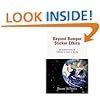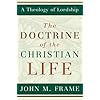| ||||||||||||||||||
Frequently Bought Together
Product Details
Would you like to update product info or give feedback on images?
|
More About the Author
Customer Reviews
|
Share your thoughts with other customers:
|
||||||||||||||||||||||
|
Most Helpful Customer Reviews
25 of 29 people found the following review helpful:
5.0 out of 5 stars
A great resource,
By
This review is from: Evangelical Ethics: Issues Facing the Church Today (Paperback)
For two decades this book has well served the evangelical community as a basic textbook in ethics. First published in 1985, a much needed second edition appeared in 1993. But with further ethical reflection called for, especially in the rapidly developing area of bio-technology, a third edition was in need, and here is the result.
This new edition features a new chapter on genetic engineering, which looks at the history, technology and morality of such issues as cloning and stem cell research. There is also a new chapter on environmental ethics. In addition to addressing some contemporary environmental concerns such as global warming and biodiversity, it offers a biblical foundation for thinking about the earth and our stewardship of it. And the existing ten chapters have been revised as well, bringing statistical and bibliographic information up to date. The opening chapter lays out some general principles of ethical thinking from a biblical viewpoint, including the problem of conflicting obligations, and the place of Christian morality in a pluralistic culture. The other nine chapters focus on major ethical and social hot potatoes of the day. Thus there are meaty chapters on such issues as contraception, reproductive technologies, homosexuality, abortion, war and peace, and capital punishment. All the issues are approached from a decidedly biblical and socially conservative standpoint. Thus in the chapters on abortion and euthanasia, a strong pro-life stance is argued for as the one most closely reflecting the biblical data. On the issue of war and defence, Davis argues that the Christian case for pacifism rests on a weak hermeneutical basis, and that the just war tradition, including nuclear deterrence, is morally justifiable. On the related issue of capital punishment, the author takes the view that it is still a binding principle, not limited to Old Testament times. It reflects both the justice of God as well as his wrath against the wrongdoer. On the thorny issue of divorce and remarriage, Davis argues that while God hates divorce (Mal. 2:16), there are cases, such as sexual infidelity and desertion, where divorce is morally permissible, though not obligatory. Reconciliation should be the main emphasis, with divorce seen as a painful last resort. Homosexuality is not overlooked. The social, medical and theological components of this discussion are all well covered. Davis argues that homosexuality is contrary to the divine will for human sexuality, and real hope is available for the homosexual who seeks to renounce his lifestyle. In sum, this book offers a clearly biblical approach to many of the controversial social and ethical debates of the day. A lot of ground is covered in the book's 350 pages. One can argue that more could have been included. For example, a full discussion of cloning and stem cell research could have been featured in a separate chapter. The very topical issue of same-sex marriage is not even mentioned in the chapter on homosexuality. Other omissions come to mind. But one can only cover so much material in a single volume. And Davis has elsewhere developed some of these topics further, as in his 1984 book on abortion. All in all this is one of the best books on contemporary social and ethical debate from a biblical perspective.
4 of 4 people found the following review helpful:
1.0 out of 5 stars
Outdated and unBiblically biased,
By Jonathan (working on the humility thing) (Bangkok, Thailand) - See all my reviews
This review is from: Evangelical Ethics: Issues Facing the Church Today (Paperback)
This is a book for the early 1980s. I'm being clear because it claims to be an "updated and revised" edition from 2004. While a couple very short chapters were added, the old material is mostly untouched. Since half the chapters are on medical issues it is sad to see almost no medical research cited past 1983.
Besides the outdated and sometimes false claims, this leads to archaic statements like, "In-vitro Fertilization represents a form of experimentation exposing human subjects to as yet unknown risks." The author managed to insert "9/11" into the war chapter as a justification for the continued need for nuclear weapons, but failed to add a single word in that whole chapter about not torturing prisoners or avoiding the killing of innocents. The book claims to target the ethical issues likely to come up for the Evangelical pastor or lay person today. In some respects it does that - issues like divorce, the environment, and civil disobedience aren't covered in similar books. But why is there nothing at all on money, poverty, or business ethics? What we do with our money and how we act towards the poor are among the great ethical issues of the Bible, appearing more than any other modern moral problem. How can that be missing from a book on evangelical ethics? Issues of race and immigration are curiously absent as well. It was distressing to see homosexuality covered but not premarital sex (which is happening more in the average evangelical congregation?), and have the death penalty covered but nothing at all about the rest of the justice system. Individual ethical issues for believers are much less important than hot-button political issues - day-to-day life isn't as relevant. For the stuff that is covered, the information reads more like a legal brief for one side than a fair exploration of ethical issues from a Christian perspective. Statistics and studies are presented in an out-of-context and misleading manner. The arguments are inconsistent - in the IVF chapter even a "small risk" of grave injury is considered "morally unacceptable", but in the death penalty chapter the risk of innocent people being executed is considered irrelevant to the morality question. In the abortion chapter it is strongly stated that even if there's only a possibility that innocent lives are being ended, the procedure must be made illegal, but the war chapter go to lengths to justify the Godly use of nuclear weapons without even mentioning the hundreds of thousands of innocent lives that would be ended instantly. Creative solutions to difficult problems and "third ways" between two opposite options are rarely explored - apparently the author only cares whether the answer is "yes" or "no", and how to actually deal with difficult ethical situations is irrelevant. Finally, the Bible is twisted and selectively quoted to meet the author's ends. In the Death Penalty chapter, Genesis 9:6 is interpreted as a divine command that holds true today and singlehandedly shows the death penalty is Biblical (even though you'd have to kill EVERY person who kills someone - even involuntary manslaughter - if it were taken as a divine command), while every relevant command of Jesus is explained away as metaphorical, irrelevant or just plain ignored. Matthew 5:9 isn't even mentioned in the war chapter, while Revelation 19:11 supposedly shows that Jesus condones even nuclear war! Judges is quoted more often than the book of Mark, and Paul's letter to the Romans is quoted almost as often as all four Gospels combined. Three verses in psalm 139 are quoted 10 times across the book, yet the three chapters of Christ's Sermon on the Mount only get 3 quotes total (once on divorce, once to claim Matthew 5:18 lends support to the death penalty, and once to claim the entire sermon is irrelevant to war). In the end, the author appears to adhere to an odd blend of Reformed Theology, right-wing American political aims, and an ethic of "the ends justify the means" in order to support his positions. If you want some out-of-context Bible verses and a bunch of research from the 1960s and 1970s to prop up a pro-Republican argument for one of these moral issues, then it's a good resource. But if you're honestly exploring these moral questions for yourself and want to understand them in a Godly and Biblical way, look elsewhere. Last note - I was disturbed a number of times to see a study cited authoritatively, and then turn to the footnotes to find that the author was not actually quoting the study, but was actually quoting only a mention of the study in some journalist's editorial. That is very poor research - if you're using newspaper and magazine editorials to glean research for an academic book, you're taking too many shortcuts.
9 of 12 people found the following review helpful:
5.0 out of 5 stars
Excellent Introduction to Christian Ethics,
By Michael Taylor "Michael Taylor" (Indian Trail NC) - See all my reviews (VINE VOICE) (TOP 500 REVIEWER) (REAL NAME)
This review is from: Evangelical Ethics: Issues Facing the Church Today (Paperback)
Davis' book serves as an excellent introduction to the issues facing contemporary Christianity. He covers 10 topics ranging from contraception to homosexuality to abortion. He gives a brief introduction to each topic then attempts to present a biblical viewpoint for each issue.I agree with the previous reviewer who said to ignore the negative reviewer - such people attempt to bog Christians down in unnecessary details while glossing over biblical thought. For example, the negative reviewer criticizes Davis' brief introduction of an issue while elaborating much more on the Christian viewpoint. Nuts! The book is aimed at Christians who wish to present thoughtful points on particular issues, so why get so bogged down in details that you start straining gnats? Besides, the negative reviewer seems to try to impress others with arrogant intellectual acumen. Negative reviewer aside, the book is an excellent read for those who wish to be grounded in basic arguments for a Christian position on a particular issue. Highly recommended!
Share your thoughts with other customers: Create your own review
|
|
"In some of this research," noted Dr. Robert Foote of Cornell, I am reminded of a story where the pilot came on and said, This is your captain speaking. Read the first page Key Phrases - Statistically Improbable Phrases (SIPs): (learn more)
nuclear pacifists, handicapped newborn, evangelical ethics, biblical outlook, capital penalty, pacifist tradition, fundamental justice, involuntary euthanasia, artificial contraception Key Phrases - Capitalized Phrases (CAPs): (learn more)
United States, New Testament, Old Testament, Roman Catholic, Jesus Christ, New York, Holy Spirit, Infant Doe, First Amendment, Soviet Union, Planned Parenthood, American Medical Association, John the Baptist, Joseph Fletcher, Los Angeles, Social Security, Hyde Amendment, John Calvin, Lynn White, Peter Singer, Roman Empire, Word of God, Everett Koop, Human Genome Project, John Murray New!
Books on Related Topics | Concordance | Text Stats Browse Sample Pages:
Front Cover | Table of Contents | First Pages | Index | Back Cover | Surprise Me!
- The Summa Theologica (Great Books of the Western World, Vol. 19 & 20) by Thomas Aquinas on 6 pages
- Death, Dying and Euthanasia by Dennis J. Horan on 4 pages
- On Crimes and Punishments by Cesare Beccaria on page 205, page 214, and Back Matter
- Christian Ethics: Options and Issues by Norman Geisler in Back Matter (1), Back Matter (2), and Back Matter (3)
- Foundations of evangelical theology by John Jefferson Davis in Back Matter (1), Back Matter (2), and Back Matter (3)
- God, Marriage, and Family: Rebuilding the Biblical Foundation by Andreas Kostenberger in Back Matter (1), Back Matter (2), and Back Matter (3)
- The Moral Quest: Foundations of Christian Ethics by Stanley J. Grenz in Back Matter (1), and Back Matter (2)
- The Moral Quest: Foundations of Christian Ethics by Stanley J. Grenz in Back Matter (1), and Back Matter (2)
- Genetic Turning Points: The Ethics of Human Genetic Intervention (Critical Issues in Bioethics) by Mr. James C. Peterson on page 116, and page 135
- God is a Divorc? Too! A Message of Hope, Healing, and Forgiveness by Sherman Nobles in Back Matter (1), and Back Matter (2)
|
What Other Items Do Customers Buy After Viewing This Item?
Tags Customers Associate with This Product(What's this?)Click on a tag to find related items, discussions, and people.
|
Sell a Digital Version of This Book in the Kindle Store
Customer Discussions
|
This product's forum
Active discussions in related forums
Search Customer Discussions
|
Related forums
|




















